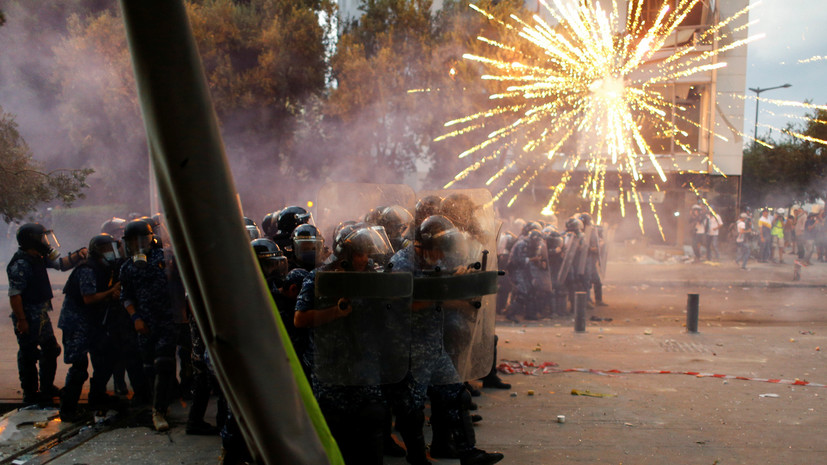The entire Lebanese government has resigned, Prime Minister Hassan Diab said in an address to the people.
“We want to open the doors to the national salvation of our homeland. I declare today the resignation of this government, ”the LBCI TV channel quotes him.
According to him, "the corruption system turned out to be stronger than the Lebanese state."
Diab also said that representatives of the previous government "launched a persecution of the government and turned the people against it."
In addition, according to the ex-prime minister, the explosion that took place in the port of Beirut on August 4, 2020 was the result of the "corruption system of the country."
Lebanese President Michel Aoun accepted the resignation of the Cabinet. At the same time, the head of state instructed the ministers to fulfill their duties until the formation of a new government.
“President of the Republic, General Michel Aoun, received a written letter of resignation from Prime Minister Hassan Diab today at the presidential palace in Baabda,” the head of state said in a statement.
To gallery page
Recall that a powerful explosion took place in the Lebanese capital on 4 August. The cause of the incident was the detonation of over 2.7 thousand tons of saltpeter confiscated from violators and stored in the port of Beirut. The explosion killed over 150 people. The damage to urban facilities was so great that, according to various estimates, more than 300 thousand people could be left without housing.
A few days later, on 8 August, massive anti-government rallies began in Beirut, which escalated into clashes with police officers. The demonstrators demanded the resignation of the Cabinet, accusing officials of corruption, which, in their opinion, led to the explosion in the port.
On the first day of the riots, more than 70 Lebanese law enforcement officers were injured, one was killed.
According to the Lebanese media, during the protests on 8 August, demonstrators in Beirut broke into the buildings of the ministries of economy and energy, and on 9 August - into the buildings of the ministries of labor and refugees.
Protesters resumed on 10 August. During a new wave of clashes, demonstrators threw stones at police representatives and demanded the resignation of the Lebanese government. According to media reports, shortly before the speech of the country's prime minister, during which he announced the resignation of the cabinet members, the police began dispersing the demonstrators.
Later it became known that the Lebanese army had regained control over the center of Beirut. The military drove the demonstrators out of the central squares and streets adjacent to the parliament building. At the same time, law enforcement officers used tear gas.
As Boris Dolgov, a leading researcher at the Center for Arab and Islamic Studies at the Institute of Oriental Studies of the Russian Academy of Sciences, noted in an interview with RT, demands for the resignation of the government sounded even before the explosion in the port.
Recall that riots began in Lebanon in October 2019. Anti-government demonstrations took place across the country, demanding economic reforms and punishing politicians involved in corruption. In November, the country's government, headed by Saad Hariri, resigned, and in early 2020, a cabinet was formed under the leadership of Hasan Diab.
Diab's government defaulted on external debt payments in March. The difficult situation in the economy has led to a significant rise in food prices. According to media reports, food prices in the country increased by more than 50% on average in May.
“These protests, directed against the government, against the fact that the government cannot resolve the long-lasting socio-economic crisis in Lebanon, stop the decline in living standards and the growth of unemployment, continued for several months. All these problems became the reason for protest demonstrations. This explosion, death of people and destruction in Beirut - they added fuel to the fire, ”Dolgov said in an interview with RT.
The expert noted that similar events took place in Lebanon before, the state existed without a government for some time. Dolgov does not exclude that external forces may be interested in the current situation, which are trying to use the socio-economic crisis in Lebanon for their own purposes.
“First of all, these are external forces that are trying to reduce the influence in Lebanon of the Shiite community and the Hezbollah movement, an ally of Iran, and thereby to some extent influence the Syrian conflict,” the expert believes.

